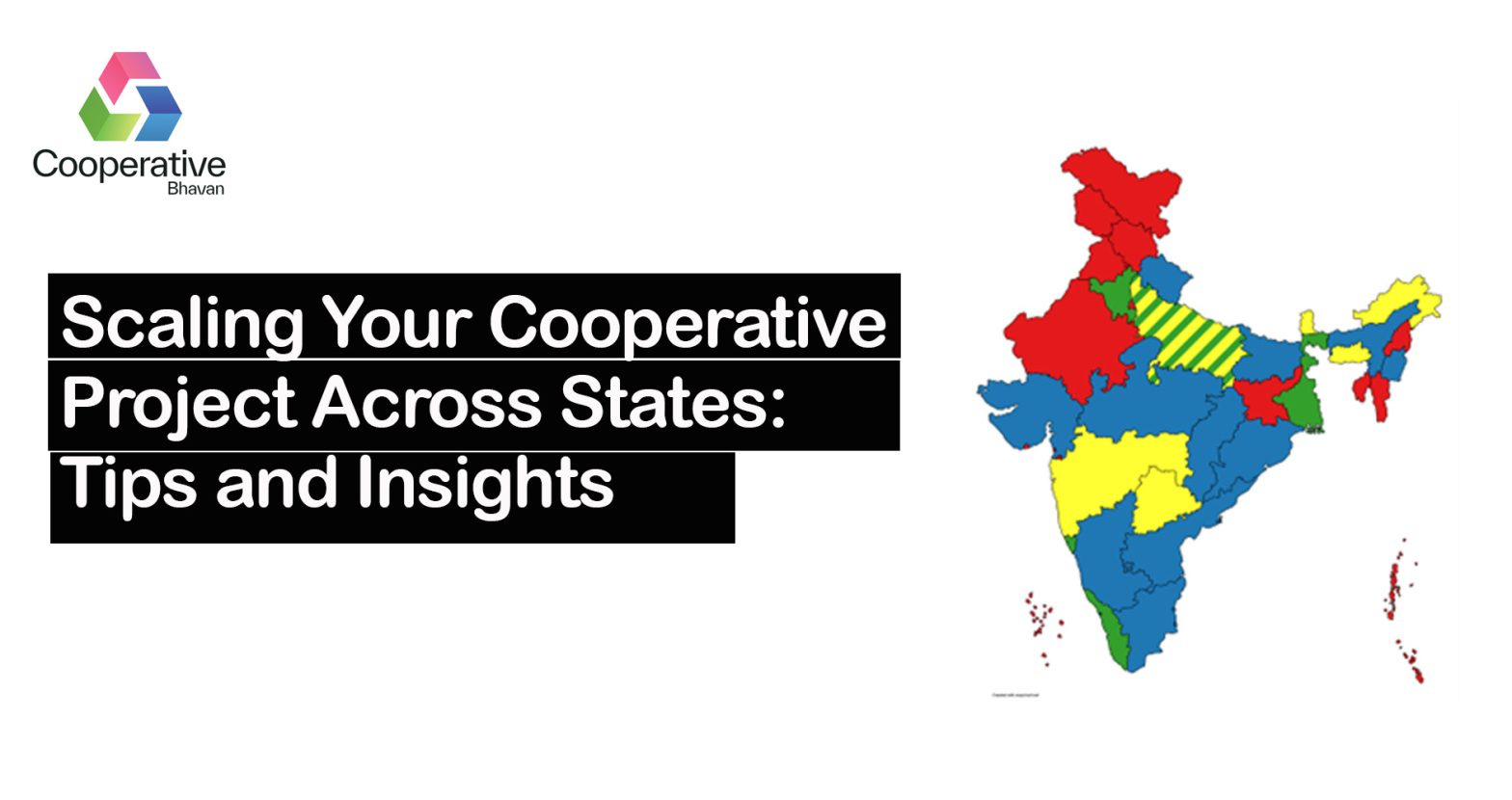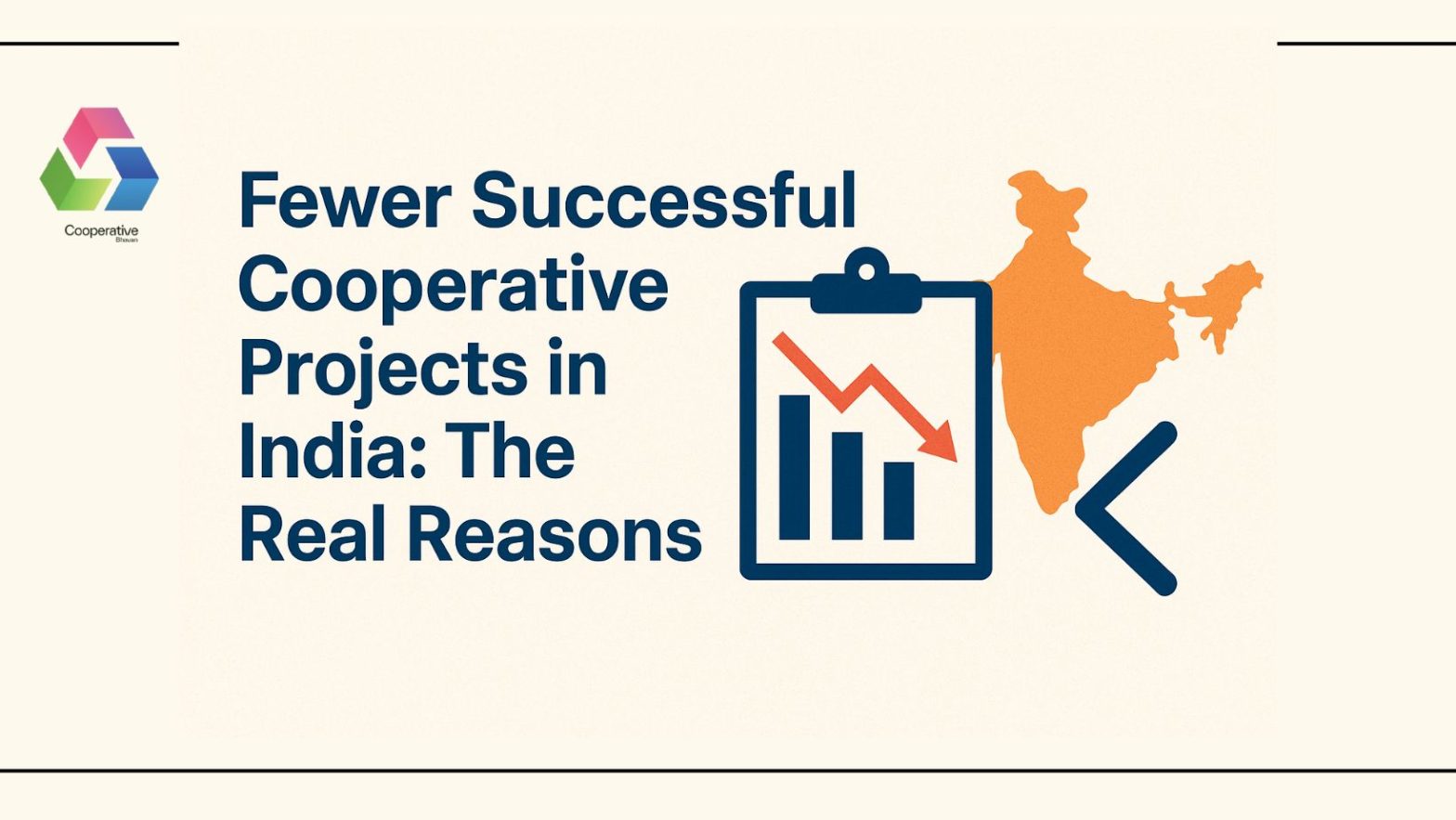The Role of Infrastructure Development in the Success of Cooperative Societies

In the evolution of India’s cooperative movement, there’s one factor that often goes unnoticed—but without it, no cooperative society can truly thrive: infrastructure development.
Whether it’s a small dairy society in a rural village or a pan-India IT-based multi-state cooperative, physical and digital infrastructure plays a crucial role in determining operational efficiency, member engagement, and long-term impact.
At Cooperative Bhavan, a leading MSCS Project builder in Kerala, this truth guides every consultation and project plan. We’ve seen firsthand how cooperatives with strong infrastructure—buildings, warehouses, cold chains, digital setups—grow faster and serve better.
Let’s explore how infrastructure shapes the future of cooperatives and why it’s essential, especially for those pursuing multi-state society registration in India.
What Is Infrastructure in the Cooperative Context?
Infrastructure doesn’t just mean big buildings or cement. In the cooperative ecosystem, it includes:
- Administrative facilities (offices, training halls, meeting rooms)
- Operational units (dairy collection centers, warehouses, agro-processing plants)
- Transport & logistics systems
- Digital infrastructure (software platforms, communication tools, websites, e-commerce portals)
- Utilities like electricity, water, internet
- Training and education centers for member capacity-building
For cooperatives aiming to function across states, as allowed under the Multi-State Cooperative Societies Act, 2002, having a scalable and reliable infrastructure becomes even more critical.
Why Infrastructure Is a Core Pillar for Cooperative Success
1. Enhances Member Participation
When members have a central space—like a well-maintained office, training center, or digital portal—they feel more connected. Infrastructure creates a sense of ownership and professionalism.
2. Improves Operational Efficiency
From storage of goods to smooth record-keeping, a good infrastructure setup helps minimize delays, losses, and miscommunication. For example, a cold storage facility in a dairy cooperative ensures milk quality and reduces waste.
3. Builds Trust with Stakeholders
Investors, customers, and government departments are more likely to trust and support cooperatives that have transparent, well-managed infrastructure.
4. Supports Legal and Audit Compliance
Cooperatives are required to maintain records, accounts, and regular meetings. Physical and digital infrastructure ensures smooth audits, member communication, and compliance with central government cooperative regulations.
Multi-State Cooperatives: Greater Need, Greater Scope
When a cooperative decides to operate in more than one state—through multi-state society registration in India—the infrastructure requirement increases significantly.
You need:
- Offices or collection centers in different states
- Central digital platform to manage operations remotely
- Logistics or transport to move goods across state borders
- Training and onboarding setups for members in various regions
This is where many societies falter. Without expert planning and guidance, infrastructure becomes a bottleneck.
How Cooperative Bhavan Supports Infrastructure-Ready Cooperatives
Based in Kerala but working across India, Cooperative Bhavan is known not just for multi-state cooperative society registration in Kerala, but also for helping societies build the foundation they need to succeed.
Here’s how they do it:
✅ Infrastructure Feasibility Planning
Before registration, Cooperative Bhavan helps assess what infrastructure is needed for the specific sector—be it dairy, IT, fisheries, or education.
✅ Project Reports & DPRs
Detailed project reports include infrastructure layouts, cost analysis, government scheme integration (like PMMSY, MIDH, etc.), and growth projections.
✅ Central Government Registration Assistance
They handle end-to-end guidance for central government multi-state society registration, ensuring that your infrastructure is aligned with national cooperative norms.
✅ Vendor & Technical Support
Need help finding the right building contractor or setting up a cold chain? Cooperative Bhavan connects societies with vendors and consultants across states.
✅ Post-Registration Setup
Once your society is registered, they guide you through physical setup, digital infrastructure onboarding, and capacity building.
Real-Life Example: Building Success with Infrastructure
Let’s take the case of a multi-state organic farming cooperative formed by youth groups in Kerala and Karnataka.
They started with a basic business idea: selling organic vegetables. But with support from Cooperative Bhavan, they added:
- A common packaging and storage unit in Kochi
- Local collection points in Mysore and Kochi
- A shared ERP software to track orders and payments
- An e-commerce site to reach customers directly
The result? Their cooperative became eligible for national-level schemes, onboarded over 1,200 members, and secured institutional buyers from four states.
The game-changer wasn’t just the idea—it was the infrastructure plan behind it.
Future of Cooperative Infrastructure: What to Expect
As India advances with digital India initiatives, smart villages, and the cooperative development fund, infrastructure for cooperatives will include:
- Solar-powered cooperative offices
- Online member training platforms
- Cold chain logistics integrated with e-commerce
- Co-working spaces for IT-based cooperatives
- Virtual AGM and e-voting platforms
But to reach this level, societies must start with the right foundation—a solid infrastructure plan, backed by experienced multi-state consulting firms in India.
No cooperative can succeed on vision alone. It needs a base—a building, a system, a space where collective dreams turn into daily action.
Whether you’re forming a dairy society, an IT platform, or a tribal cooperative, think beyond the paperwork. Think infrastructure.
And if you’re looking for a trusted partner to build that foundation, Cooperative Bhavan is here to help—from MSCS registration in Kerala to nationwide infrastructure planning.








































 Mail
Mail  Booking
Booking
 Call
Call